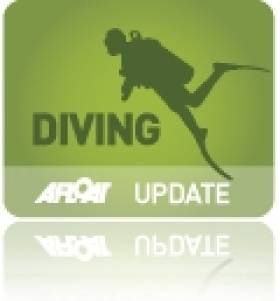Displaying items by tag: Lough Salt
Divers Search For Balls Sunk By Golfing Legend
#DIVING - Diver Gus O'Driscoll and four members of the Delta Specialist Diving Club are currently searching the bed of Lough Salt in Donegal for a number of golf balls driven into the water more than 100 years ago by the legendary Old Tom Morris.
The Belfast Telegraph reports that 20 of the golfer's own rubber balls were hit into the lake during an exhibition in 1891. Though worth a shilling a piece at the time, today they are worth a whopping €20,000 each.
The only obstacle in the path of the intrepid divers is the mountain of golf balls they have to sift through to find the exceedingly rare 'gutta perches'.
"There are literally thousands of balls at the bottom of Lough Salt because stopping off to hit golf balls there has been a tradition going back to Morris's time," said O'Driscoll.
If they do strike it lucky, the divers plan to donate their finds to the nearby Rosapenna Golf Club, whose course was designed by Old Tom himself.
Double Tragedy for Beara Peninsula as Retired Teacher Drowns
#NEWS UPDATE - The Irish Times reports that the body of a retired schoolteacher was recovered from the sea off Castletownbere in West Cork on Friday in the second tragedy the area has seen this week.
Sixty-six-year-old Pearse Lyne drowned after his fishing boat capsized in poor weather off the Beara Peninsula.
A search operation was launched around 1.30pm after a cliffwalker spotted the upturned vessel near the Dzogchen Buddhist retreat, and the body of the father of four and former national school principal was discovered some 90 minutes later in the water near Pulleen harbour.
The sad incident occurred just says after farmer and poet John O'Leary drowned off Cod's Head when the Enterprise sailing dinghy he was sailing with his teenage son Christopher capsized.
As previously reported on Afloat.ie, Minister for the Marine Simon Coveney paid tribute to O'Leary as well as Quilty fishermen Michael Galvin and Noel Dickinson, who drowned earlier this week off the Clare coast.
Meanwhile, in Dongeal a diver was rescued after getting into difficulty in Lough Salt on Thursday evening, according to the Donegal Democrat.
The Donegal native was one of two divers in the lough at the time, and is believed to have experienced buoyancy issues while some 50m below the surface.
He was taken to Letterkenny General Hospital and later transferred to Craigavon for treatment for decompression sickness. The man is now recovering.
His diving partner, an Italian national living in Ireland, made it to shore unharmed.






























































